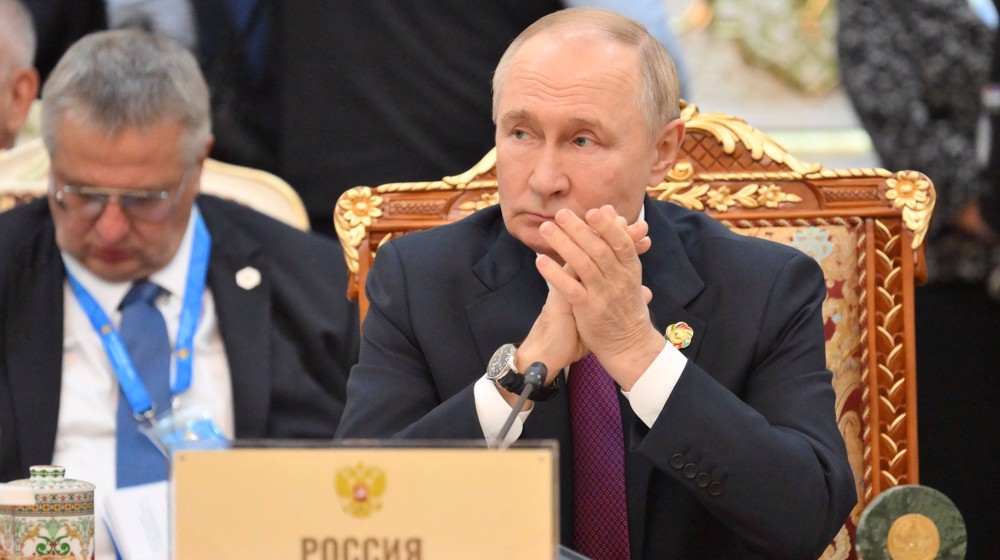Russian President Vladimir Putin says Israeli leaders have requested him to convey to Iran that they are not seeking further confrontation with Iran and wish to ease tensions.
Tensions between Iran and Israel soared after the occupation regime launched an unprovoked aggression on Iran on June 13, which triggered a 12-day war. The regime assassinated top commanders and nuclear scientists and also killed hundreds of civilians across the country. The United States also intervened, bombing three Iranian nuclear sites in a breach of international law.
The 12-day war came to a stop on June 24, after crushing retaliatory Iranian strikes targeting both Israeli and US positions forced Israel to halt its aggression and enter a unilateral ceasefire.
Addressing the Central Asia-Russia summit in Dushanbe on Thursday, Putin said that Israeli authorities have asked him to deliver a message to Iran.
“We continue confidence-based contacts with Israel and receive signals from Israeli leadership asking that this be conveyed to our Iranian friends that Israel intends and is determined to further resolve the issue, and is not interested in any form of confrontation,” he said.
Putin also said that the only viable way to address concerns about Iran’s peaceful nuclear program is through diplomacy.
“Also, only through diplomacy and negotiations can the situation around Iran’s nuclear program be resolved. There is no reasonable alternative to it,” he said.
“We maintain close contact with our Iranian partners and feel their resolve to seek mutually acceptable solutions and to renew constructive cooperation with the IAEA,” added the Russian president.
Moscow recently hosted Director General of the IAEA Rafael Grossi and spoke in detail about the topic, Putin said, adding that Grossi, too, pointed to the Iranian side’s aspiration to resolve all issues.
“There are still technical questions, but all of them, once the achieved agreements are implemented, will play toward reaching a final settlement on this very complex regional problem,” he added.
Iran says the latest escalation over its nuclear program is the direct result of broken promises and unlawful actions by the United States and its European allies.
Tehran signed the Joint Comprehensive Plan of Action (JCPOA) in 2015, accepting strict limits on its nuclear activities in return for sanctions relief. But in 2018, Washington unilaterally abandoned the deal. The Europeans failed to deliver on their commitments, leaving Iran with no choice but to gradually reduce its obligations.
The situation worsened in June, when the United States and Israel carried out attacks on Iranian nuclear facilities. In response, Tehran ended cooperation with the International Atomic Energy Agency (IAEA), pointing in part to the agency’s inaction towards the aggression.
On August 28, the European trio invoked the JCPOA’s snapback mechanism to restore UN sanctions. Iran rejected the move as illegitimate, stressing that the US had already withdrawn from the accord and that Europe had aligned itself with unlawful pressure.
Russia and China sought to extend diplomacy, but their proposal failed at the Security Council on September 26. Two days later, Washington and its allies declared sanctions reimposed.
Tehran signed an agreement with the IAEA in Cairo in September for a new framework of cooperation. However, Iranian officials then insisted that the agreement would not be implemented if the sanctions were resumed.
